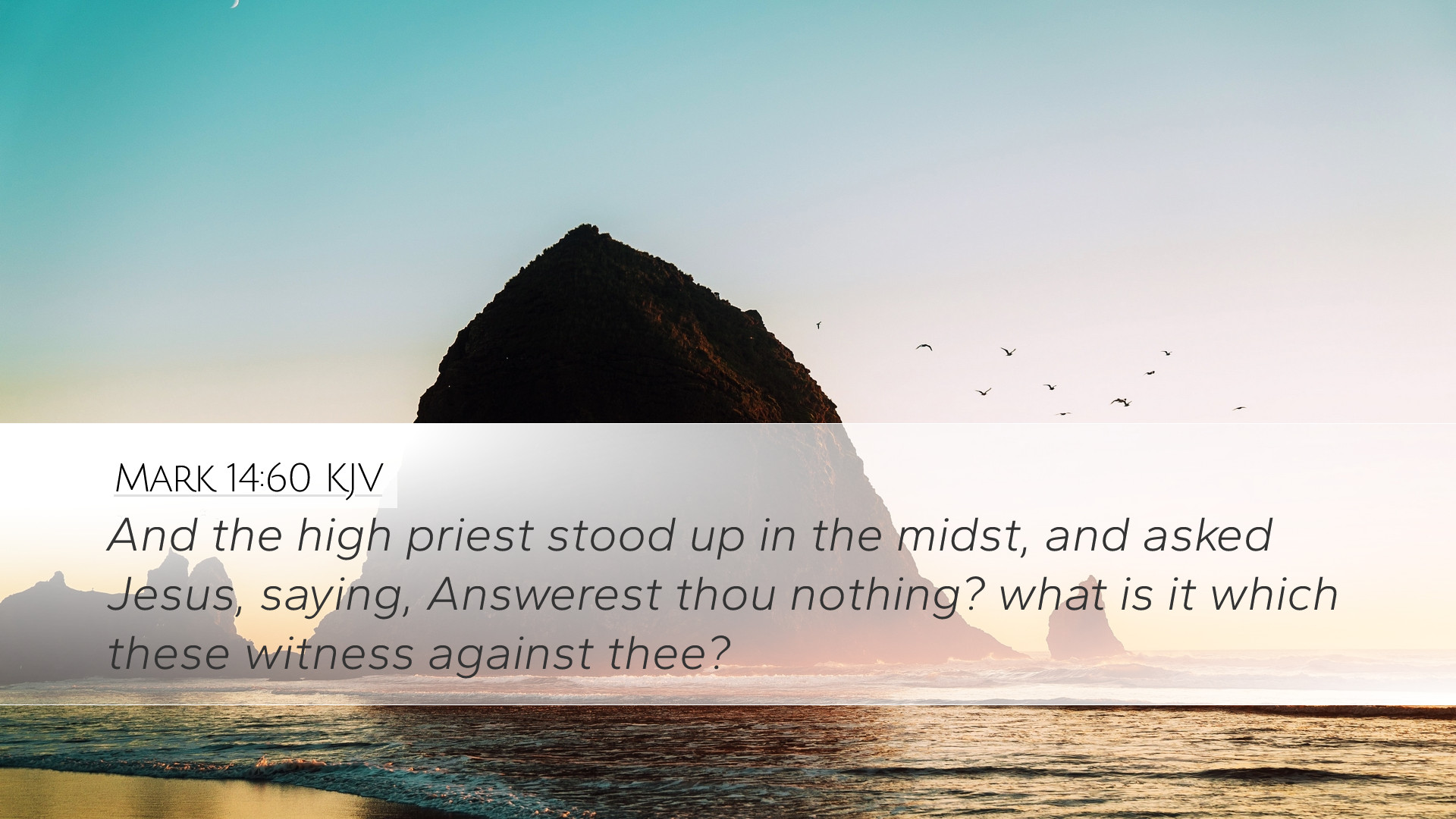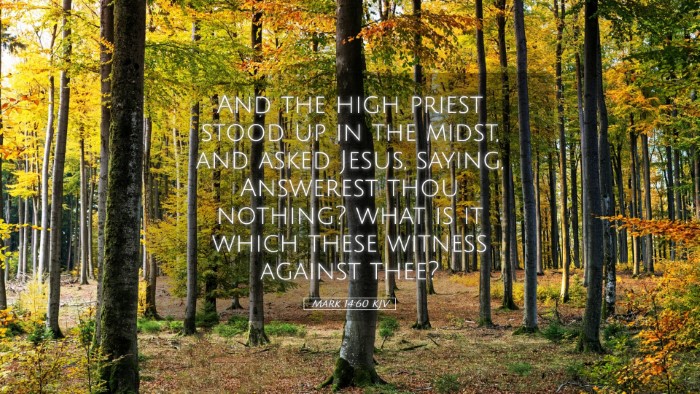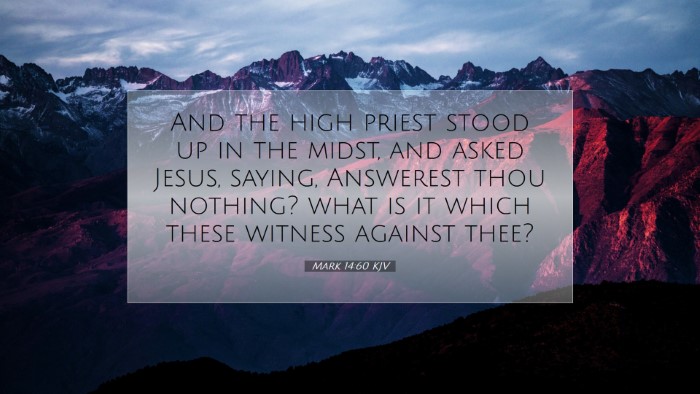Commentary on Mark 14:60
Mark 14:60 reads: "And the high priest stood up in the midst, and asked Jesus, saying, Answerest thou nothing? what is it which these witness against thee?"
Contextual Overview
The passage occurs during the trial of Jesus before the Sanhedrin, highlighting the tension and the gravity of the events leading to His crucifixion. Jesus has been arrested, and this phase of the trial sets the stage for subsequent accusations and Jesus's responses, or lack thereof.
Analysis of Key Elements
1. The High Priest's Role
The high priest, symbolizing the religious authority of Israel, stands as a crucial figure during the proceedings. This moment emphasizes a significant transition from the old covenant system to the new covenant established by Christ. Matthew Henry notes that the high priest had not only a ceremonial role but also a spiritual responsibility to discern truth. Despite this authority, he confronts Jesus in a moment that appears to be more about asserting power than seeking truth.
2. The Questioning of Jesus
The inquiry posed by the high priest reflects a desperate need to establish grounds for condemnation. Albert Barnes posits that the question "Answerest thou nothing?" reveals an expectation for Jesus to defend Himself against the false testimony being presented. This moment explores themes of silence and suffering, paralleling the prophecies found in Isaiah 53:7, where the Messiah is depicted as silent before His accusers.
3. The Nature of the Witnesses
The testimonies against Jesus were inconsistent and fabricated. Adam Clarke remarks that the witnesses were called to present a unified front against Him, yet their contradictions ultimately served to intensify the injustice of the trial. It is pivotal to recognize that these false witnesses unwittingly fulfilled the prophetic Scriptures, outlining the fate of the Messiah.
Theological Implications
Mark 14:60 invites deep theological reflection on the nature of justice and mercy. The high priest's action embodies human judgment riddled with prejudice and malice, contrasting sharply with the divine justice embodied in Jesus. The silence of Jesus speaks volumes about His identity as the Lamb of God, who, though innocent, does not seek to protest the unfolding of God’s redemptive plan.
1. Understanding Suffering
The silence of Jesus, in response to the high priest's questions, allows us to reflect on the nature of suffering. Matthew Henry notes that Jesus’s submission highlights His obedience to the Father’s will. This suffering, embraced in silence, mirrors the trials faced by Christians throughout history. It challenges believers to embody the strength found in weakness.
2. The Fulfillment of Prophecy
This trial scene is rich with prophetic significance, fulfilling the foretold suffering of the Messiah. Albert Barnes emphasizes that the events leading up to the crucifixion were not random but divinely ordained. In this context, believers are reminded that God’s plan transcends human opposition and misunderstanding.
Lessons for Today
Mark 14:60 provides profound lessons for contemporary Christians, especially pastors and theologians who seek to understand the gravity of Jesus’s sacrifice.
-
The Importance of Integrity:
The reliance on false testimony accentuates the call for integrity within the church today. Leaders are urged to embody truthfulness in their ministry, reflecting Christ's character in the face of adversity.
-
Embracing Suffering:
Believers often encounter moments of trial and suffering. Jesus’s silence serves as a reminder of His presence in our sufferings, encouraging us to trust in His plan while enduring challenges.
-
The Call to Stand Firm:
While Jesus remains silent, the chapter emphasizes the courage required to stand firm in one’s faith amidst opposition. This passage encourages believers to uphold their values even when faced with accusations or scrutiny.
Conclusion
Mark 14:60 is not merely a historical account; it offers rich theological insights into the nature of Christ’s sacrifice and the complexities of human justice. As we reflect on this verse, both pastors and scholars are encouraged to seek deeper understanding and application of its truths in their ministries and studies, facilitating a profound engagement with the character and mission of Jesus Christ.


